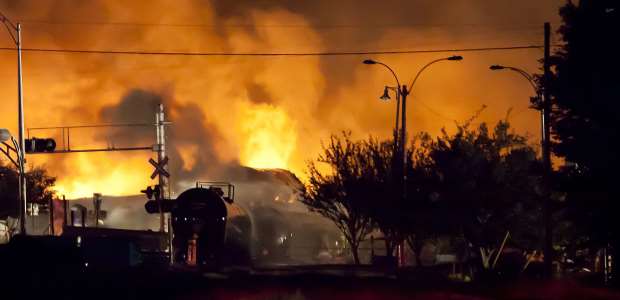
Washington State Adopts Crude Oil Train Notification Rule
Four facilities in the state currently receiving crude oil shipments by rail and two pipelines that transport crude, along with new facilities and pipelines that are built, must notify the Washington Department of Ecology in advance.
Washington state has adopted a rule requiring facilities that receive crude oil by rail to notify the Washington Department of Ecology in advance. The rule applies to pipelines transporting crude oil in the state -- their operators must submit information about volumes and place of origin twice a year.
The rule allows the department to share crude oil movement information with emergency response agencies through an advance notification system, and it also will publish aggregated public disclosure reports quarterly about oil movement in the state. The new rule goes into effect Oct. 1, 2016, and the first quarterly report will be published in January 2017.
"In the wake of recent oil train disasters, Washington is moving quickly to improve public safety and protect our natural resources," said Gov. Jay Inslee. "This rule will assure that our emergency responders get advanced notice before oil train shipments arrive in their communities."
The rule applies to four facilities in Washington that currently receive crude oil shipments by rail and two pipelines that transport crude oil in the state, but new facilities and pipelines will be subject to the rule. While no such state reporting standards existed previously, a 2014 emergency order by the U.S. Department of Transportation required railroad carriers transporting Bakken crude oil in single trains and in volumes greater than 1 million gallons to provide information to state emergency response commissions on estimated volumes and frequencies of those trains.
The Department of Ecology held four public meetings on the new rule during a 65-day public comment period and received more than 1,000 comments in all.
The new rule is Chapter 173-185 WAC, Oil Movement by Rail and Pipeline Notification. It identifies reporting standards for Ecology to share information with emergency responders, local governments, tribes, and the public.
There have been several high-profile derailments in recent years involving crude oil trains, the most prominent of which is the July 2013 derailment of a train hauling Bakken crude oil in Lac–Mégantic, Quebec. The explosion and fire caused extensive damage and killed 47 people.